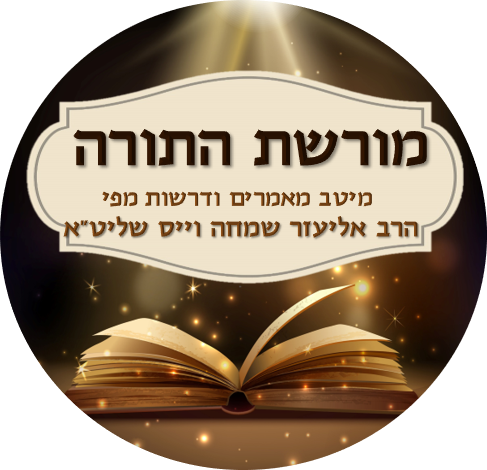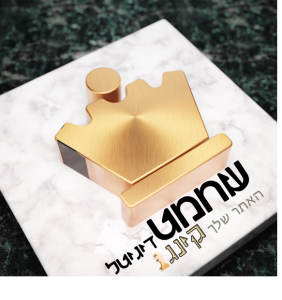It was the year 1550 and we were persecuted and poor. In the Cracow ghetto there was one rich Jew whose name was Yossele. He was rich, but he was considered stingy, and the greatest miser in the world. Everyone was sure that he shared his wealth with no one, never gave to anyone – ever. In his whole life nobody had ever seen him give a penny to a single Jew. “He must have a heart of stone,” people thought. Everyone in the ghetto knew how much he had and how he hoarded it. Everyone judged him for not doing something to help the suffering and need of the women and children and the elderly. But he never made public donations… They thought he was hard-hearted, and they hated him for it. They talked about him and his stinginess and prayed that G-d, blessed be His Name, would remember his meanness. The children feared him and threw stones at him when he walked in the street. Nobody said “Gut Shabbos” to Yossele; no one gave him a blessing on Rosh HaShanah. When Yossele walked the street, people would call him, “Dirty miser.” In time, Yossele, got old and sick. The word spread that he was finally nearing the end. Before he died the community Burial Society went to him saying” All right, here’s your last chance. You never gave anything to the poor. Make up for it now! Give us a thousand rubles to pay for your grave. We’ll give every penny of it to the poor.” But obviously Yossele really did have a heart of stone. He answered them, “I can’t afford more than fifty rubles.” They got so angry, they started yelling, “Yossele, you know you can’t take your money with you!” He just said, “No, I’m not giving more than fifty.” In the end they gave up and said, “Fine, but we’re not going to bury you.” Yossele just smiled and said, “Then I’ll bury myself. I’ve done a lot by myself, you know.” The Burial Society didn’t know what he meant. They shook their heads and got up to walk out, and at that moment he said “ShemaYisroel Hashem Elokeinu Hsahem echad” and passed awayWell, the Burial Society kept their word. Yossele died on Sunday night, and they left his body there in the house. They didn’t bury him on Monday, not Tuesday or on Wednesday. On Wednesday night one of his neighbors decided that he couldn’t just leave him lying there, so he threw Yossele on a wagon and drove out to the cemetery. Still, Yossele had been a miser: so he buried him at the entrance to the cemetery, marking his grave as that of Yossele the Miser.
But then disturbing changes began to surface. Just before the Sabbath, the community leaders started approaching the rabbi for money to be given to poor women and children and old people. He gave them what he could, when he could. But he asked them, “What did you do before? Why are you asking me now? You never did previously.” The Rabbi began making inquiries. To his horror he found that every week before the Sabbath, Yossele had been secretly giving to the poor so that they did not have to beg from the leaders or the rabbi. Moreover, he had given so that no one, not even those who received his generosity, would know. Every Thursday morning, he would put an envelope under the door of the needy people, and on it was written ‘Lekhovod Shabbos, [in honor of Shabbos].’
The rabbi was distressed. Yossele had been the holiest of them all and now they did not even know where he was buried. They had treated him so vilely – doing to him what they had accused him of, blaming him for what really was their own shallow judgment and smallness of mind and heart. The rabbi gathered the whole community and decreed that they would fast and do penance for what they had done to Yossele while he was alive and for how they had dishonored him in death. They must ask Yossele to forgive them and their mean-spiritedness, and they must ask for some sign that they were forgiven. They all set to it with fervor. And on the tombstone which read “Yossele the Miser,” the Rabbi added the word hatzadik—the Righteous One.
That Shabbos the Rabbi announced in the Shul that Sunday would be a fast day, to beg forgiveness from Yossele the Holy Miser. The whole community came to Shul that day and cried endlessly, “Yossele, forgive us.” Just at sunset Rabbi Kalman went to the holy ark, opened it, and yelled out from the depths of his heart,
“Yossele, Holy Miser, give us a sign that you forgive us!” and he fainted.
When he woke up he told the people what he saw when he was unconscious: , in a vision he saw Yossele in the Garden he of Eden surrounded by the righteous. Yossele told him, “Tell the people to stop fasting and doing penance and to go home and live with each other. I have forgiven them. I forgave them every day for what they did and what they thought of me. You see, long ago I asked G-d, blessed be His Name, for a favor. I wanted the honor and the privilege of giving to others the way G-d gives, without anyone’s knowledge and without requiring anyone’s thanks. I wanted them to be so thankful that they in turn would give out of their bounty to others in need.” The rabbi was stunned. When he told the people what he had seen and heard they were speechless. What did they know? There was so much to learn, so much to change.
We must never presume to know to judge the other for we do not truly see.
Parshat Vayera contains a very unusual dialogue between Avraham and G-d over the destiny of Sdom. Spanning 17 verses Avraham engages G-d in six rounds of negotiations in which he tried to save the cities of Sdom and Ammora from destruction. Now G-d knew the final result of His demonstrating His intentions to Avraham. So what is the point what the Torah is teachin us? It is not to be judgmental. G-d says “You, Avraham,, even you, do not see and cannot judge”
All the more so us lesser mortals: we should not be judgmental.

 שחמט דיגיטל
שחמט דיגיטל